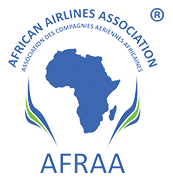The African Airlines Association (AFRAA) had the opportunity to contribute to the TIACA Regional Summit held from 19 – 21 June 2023 in Nairobi, Kenya. AFRAA participated in the following sessions:
- Presentation by Mr. Denis Kimani – Manager, Government, Legal and Industry Affairs
Topic: Workforce Challenges – Attracting, Retaining and Developing the Next Generation Workforce continues to be a Universal Challenge. How is Africa tackling this crucial topic?
Attracting, retaining, and nurturing the next generation workforce in the aviation industry is a global obstacle that applies to air cargo in the African continent as well. The presentation focused on the key challenges faced in attracting, retaining, and developing the next generation workforce in African air cargo operations.
The growth of the air cargo sector in Africa necessitates a corresponding investment in human capital. Professionals such as pilots, cabin crews, engineers, and dispatchers are needed to support the potential traffic growth in Africa, which is projected to double every 15 to 20 years. The fact that 70% of Sub-Saharan Africa’s population is under 30 presents an opportunity to meet these workforce needs.
To address these challenges, the International Civil Aviation Organization (ICAO) has established the Next Generation of Aviation Professionals (NGAP) initiative. NGAP aims to develop strategies, best practices, tools, standards, and guidelines to attract, educate, and retain the next generation of aviation professionals.
Various industry players have also taken initiatives to address the workforce challenges. For example, the “Ask IATA” program brings together academic institutions and IATA experts to discuss the present and future of aviation. Additionally, air cargo operators have implemented their own initiatives to tackle the workforce issues. AFRAA offers consultancy services to identify gaps in any institution and offers tailored solutions based on the gap analysis.
However, there are several challenges that need to be overcome. Limited awareness among young professionals about career opportunities in the air cargo industry is a significant hurdle. The industry also faces a shortage of specialized skills and knowledge required for air cargo operations, and there is a lack of tailored African air cargo programs in African universities and vocational training institutions.
Retention is another challenge, with high attrition rates due to limited career growth opportunities and competition from other industries. Inadequate measures to foster employee satisfaction and engagement within the air cargo sector contribute to this issue.
The rapid advancement of technology in the air cargo industry poses another challenge. There is a need for a skilled workforce to adapt and leverage new technologies, but limited exposure to and training on emerging technologies exist.
To address these challenges, it is crucial to conduct targeted awareness campaigns to educate and attract young professionals to the air cargo industry. Specialized training programs should be established in collaboration with industry stakeholders to bridge the skills gap. Embracing technological advancements through training programs and collaborations with technology providers is essential. Employee engagement and retention strategies should also be implemented, including career progression opportunities and a supportive work environment.
Partnerships with universities and research institutions can play a significant role in designing and delivering training programs, as well as encouraging industry practitioners to contribute their expertise.
By addressing the lack of awareness, skills gap, retention issues, and embracing technological advancements, the African air cargo industry can overcome its workforce challenges. Through collaborative efforts between stakeholders, training programs, and employee engagement strategies, the industry can thrive with a skilled and motivated workforce.
2. Panel moderated by Ms. Maureen Kahonge – Senior Manager, Business Development and Communications
Topic: Spotlight on Air Cargo East Africa
The Panelists included:
- Jacob Bwana – General Manager Marketing & Business Development – KAA
- Dawit Woubishet – CEO – Woubget Holdings, international federation of freight forwarders associations FIATA board member and chairman of the Air Freight Institute, vice chair for Ethiopia freight forwarding association
- Absolom Ngari – Director Strategy, GSSA & Airline Partnerships – Aero Africa
The panel discussed the unique opportunities and challenges in air cargo for East Africa and proposed recommendations to drive air cargo and ultimately drive regional economic growth.
The Key Takeaway points included:
- Need to increase the level of value-added exports from the region
- Address the limitations of market access by implementation of SAATM
- Enhance intra and inter regional trade by implementation of AfCFTA
- Balance inbound and outbound cargo
- Skills development and initiatives to develop Next-Gen aviation professionals
- Enhance Safety and Security
- Infrastructure development to support the value chain and grow e-commerce
- Inter-modal collaboration to achieve speed, transparency and efficiency of cargo transportation
3. Panel modeled by Ms. Raffaella Irie – Manager, Training, Data and Statistics
Topic: Digital Innovations in Cargo Operations
The panel included the following industry representatives:
- Mr Kasaine Ole Pertet – General Manager ICT, Kenya Airports Authority
- Mr Jasraj Chug – Co-founder & Director, Cargoflash Infotech
- Mr. Meshack Kipturgo – Chairman, NAS-Siginon Aviation
- Mr. Fred Gitonga – Country Sales Manager – Freight-In-Time/UPS Supply Chain Solutions
The discussions focused on how digital innovation could help enhance the cargo industry efficiency and make it relevant to customers, particularly in the African context.
The key recommendations from the panelists to take full advantage of the huge potential of cargo operations in Africa are:
- Take advantage of existing cargo data to make a precise diagnosis of the industry, identify gaps and take corrective actions;
- Encourage digital innovation at all levels by investing in the training and development of start-ups;
- Make sure that the regulatory environment is favourable to a digitalized and interconnected cargo ecosystem.
